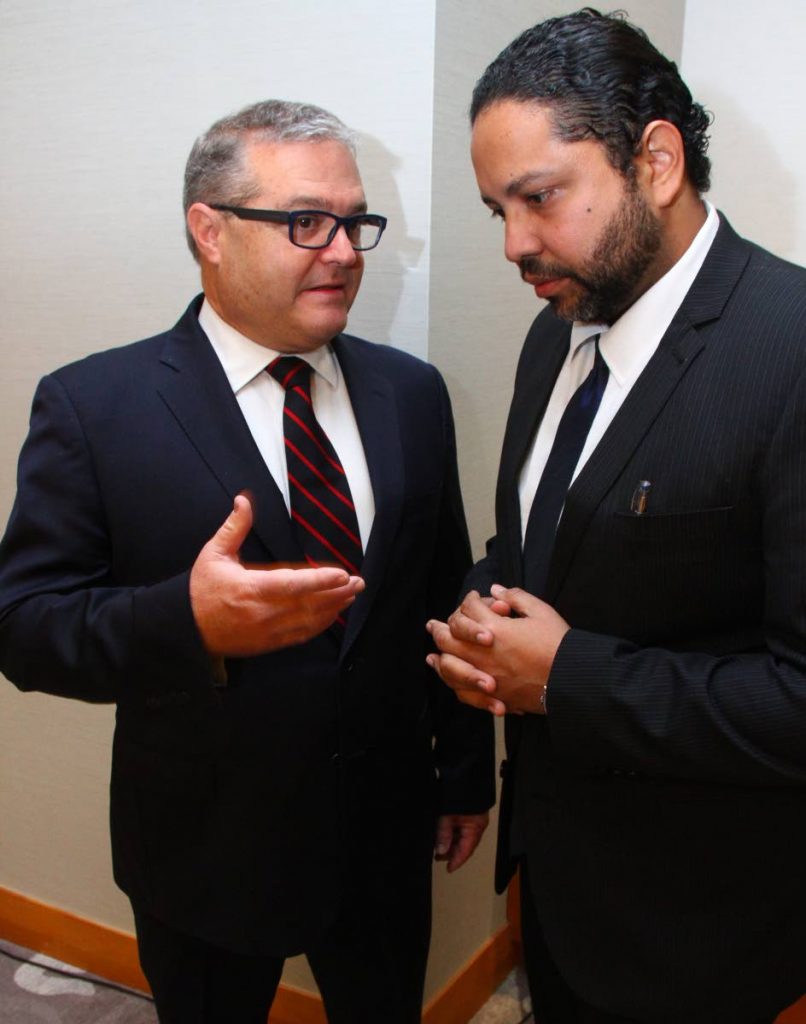Pirates of the Caribbean

Time is of the essence when dealing with content piracy, says HBO vice president for Latin America Javier Figueres. That, and a robust legislative and regulatory system that enforces the rules to deter offenders. Unfortunately, though, Trinidad and Tobago has proven to be lacklustre on both counts.
“I do believe they need to step up. When we go and present a cease and desist letter (to people who are stealing our content), they need to act very fast to shut them down and take licenses away. The regulator should have the power to grant licences and to take them away,” he told Business Day on Tuesday at a conference on the impact of content piracy on the subscription television industry.
If TT really wants to improve its competitiveness, it needs to improve the way the authorities deal with intellectual property infringements, he said.
Home Box Office, Inc is a subsidiary of Time Warner, and is the longest running subscription television service in the United States. It is also the producer of internationally-acclaimed and popular series like Game of Thrones, Big Little Lies and Last Week Tonight.
In the Caribbean, the biggest concerns for the company is piracy in the transmission of its channels without licencing from local cable companies and people who steal content through illegal downloads and streams. In fact, after years of lobbying, the company only recently managed to get the local regulator, the Telecommunications Authority (TATT), to take action against one company — which had even been granted permission to operate by TATT — that had been stealing the feeds of up to 20 channels owned by the company. “It surprises me that in 2018, this sort of thing is still happening. They shouldn’t have a licence and definitely not a national licence because they are operating illegally,” said Figueres. Local telecoms companies have invested over US$500 million in infrastructure and networks. When you have a company unfairly competing through illegal means, it harms the ecosystem, he said.
He describes HBO’s battle versus transmission and content thieves in the Caribbean as “demanding,” taking a lot of time to clean up. And one of their biggest challenges has been to convince local authorities to help them comply with the law.
“Sometimes these entities don’t even have the power to enforce the law. They are just a broadcast commission providing licensing for receiving content and that’s always been a challenge,” he said.
HBO, however, understands the demand for content from its customers and wants to help the region access that legally. So, it has tried to work with local cable providers to better — and legally — serve customers. In 2007, the company spent US$6 million to launch the HBO Caribbean stream.
In 1991, the company launched HBO Latin America. Caribbean cable operators claimed that the content was in Spanish, and since the region is English-speaking, believed that gave them licence to illegally transmit an American feed, HBO domestic, instead. “That was their argument, which wasn’t necessarily true, since it’s Hollywood movies and so would be in English anyway,” said Figueres. Local cable operators kept using that as their excuse, until finally, in 2007, with the formation of regional telecoms giant Flow, the company launched the HBO Caribbean feed, with content specifically chosen to appeal to people in the region, that may not have been available from the Latin American feed. Flow removed the illegal channels from its line up and instead offered a master premium channel that, Figueres says, has been well-received in the region. And as online streaming becomes more popular, the company has also launched the HBO Go app, now available for download on the TT App Store or Google Play.
“This is our commitment to the region so when we see companies violating that and doing something illegal for years we have to stand up for our rights,” he said. If local authorities don’t work, the company then resorts to the US Department of Trade under their code 301. The Special 301 Report, issued annually by the department, looks at countries around the world where intellectual property rights abuses can lead to a barrier to entry and unfair competition for US firms. For years, TT has appeared on that report as one of the biggest offenders in the region, but, according to TATT, since 2016, through strident efforts by the authority, the country has been removed from the watch list.
And just as the company is getting a handle on illegal transmission, a new threat is rising — android boxes. These devices connect to users’ television sets and allow them to stream content from the internet — including illegally accessed material. In Trinidad alone, there are estimates of nearly 60,000 to 80,000 android boxes, undercutting subscription TV revenue.
“Added to everything has been android boxes and their illegality. As an industry, we need to protect ourselves. We all have to work together to find ways to block companies from profiting from illegal content,” Figueres said.


Comments
"Pirates of the Caribbean"